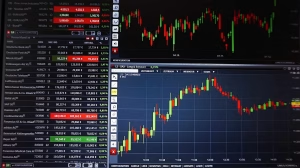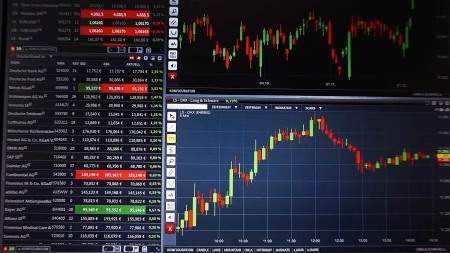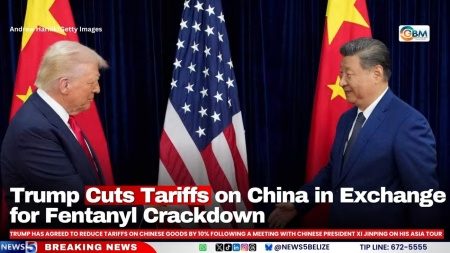Israel’s Attack on Qatar – The Middle East has long been a region of geopolitical tensions, with disputes often spilling into global markets. An attack by Israel on Qatar marks not only a serious escalation in the region but also a potential turning point in global financial, economic, and trading platform. Qatar, a key player in energy exports and international investment, holds a critical position in the global economy. Any disruption involving its stability inevitably creates ripples far beyond its borders, shaping the behavior of markets, economies, and trading systems around the world.
Attack on Qatar: Impact on Energy Markets
Israeli attack on Qatar, Qatar is one of the largest exporters of liquefied natural gas (LNG), holding significant leverage in global energy supplies. An attack threatens to disrupt LNG production and shipping routes through the Persian Gulf, particularly the Strait of Hormuz, a passage crucial for the transport of oil and gas. Even the perception of risk in this region often drives oil prices upward, leading to global energy inflation.
If LNG exports from Qatar are halted or reduced, countries in Asia and Europe, heavily reliant on Qatari supplies, will face shortages and soaring energy costs. Energy traders would respond with speculative surges, further destabilizing already fragile markets. Such volatility may push nations to seek alternative suppliers, but replacing Qatar’s role in the energy market is nearly impossible in the short term.

Israel’s Attack on Qatar: Financial Market Turbulence
Global financial markets are highly sensitive to conflict in energy-rich regions. An Israeli attack on Qatar would likely lead to immediate stock market declines, particularly in energy-dependent economies and sectors such as aviation, shipping, and manufacturing. Investors generally react by pulling capital into safe-haven assets like gold, the U.S. dollar, or Swiss franc, causing fluctuations in currency markets.
Qatar’s own financial sector, known for its sovereign wealth fund and extensive global investments, would face severe challenges. The Qatar Investment Authority (QIA), which has stakes in major companies and infrastructure projects worldwide, may be forced to liquidate assets to stabilize its domestic economy. This move would disrupt equities in European and American markets where Qatari investments are significant.

Israel’s Attack on Qatar
Regional Economic Instability
The attack would intensify divisions in the Middle East, polarizing regional alliances and trade relationships. Neighboring Gulf Cooperation Council (GCC) members, many of whom rely on trade with Qatar, would be forced to reassess their positions. Saudi Arabia and the United Arab Emirates may seek to capitalize on Qatar’s weakened trade position, but the instability could just as easily harm the broader Gulf economy.
Tourism, another vital industry in Qatar, would collapse under the weight of insecurity. The country, which invested heavily in showcasing itself as a global hub through events like the 2022 FIFA World Cup, risks losing international confidence. Airlines like Qatar Airways would also face declines in passenger traffic and disruptions in global routes.
Global Trade Disruptions
Qatar’s geographic and strategic position places it at the crossroads of global trade routes. Conflict in the Gulf would threaten maritime shipping, particularly the movement of oil and LNG tankers. Rising insurance costs for shipping companies, rerouting of vessels, and port closures would increase the cost of global trade.
This disruption would not only affect energy but also general cargo passing through the region. Europe and Asia, in particular, would feel the brunt of higher transportation costs and supply chain delays. The situation could contribute to renewed global inflationary pressures, with rising costs of goods and reduced availability of essential supplies.

Economic Consequences for Israel
While Israel might view an attack on Qatar as a strategic move, the economic repercussions for itself would be unavoidable. Israel depends on trade with various global partners who may view aggression against Qatar unfavorably. Diplomatic fallout could lead to reduced economic cooperation and potential sanctions from nations sympathetic to Qatar.
Moreover, Israel’s own financial markets could suffer from increased regional instability. Foreign investors often view Israel as a hub for technological innovation, but heightened conflict may discourage investment and damage its reputation as a relatively stable economy in the Middle East.
The Role of International Powers
The involvement of international actors cannot be ignored. The United States and European Union, both of whom rely on Qatar for energy and regional balance, would likely push for de-escalation. China and India, major consumers of Qatari LNG, would also be vocal in demanding stability. Such pressures could lead to sanctions or trade restrictions against Israel, damaging its economy while simultaneously attempting to protect global markets from deeper shocks.
Meanwhile, Russia, already an energy powerhouse, may attempt to capitalize on the situation by increasing its gas exports to markets previously served by Qatar. However, this opportunism could also deepen geopolitical rivalries, particularly between Moscow and Western powers.

Long-Term Economic Ramifications
If the conflict drags on, long-term consequences would reshape economic alliances. Qatar may strengthen ties with countries offering diplomatic or military support, potentially deepening its cooperation with Turkey, Iran, or China. This reconfiguration of alliances would influence trade routes, investment flows, and financial strategies across the Middle East and beyond.
Global businesses, particularly in finance, energy, and logistics, would have to adapt to a new normal of heightened risk in the Gulf region. Insurance premiums for shipping, investments in regional projects, and the cost of securing energy supplies would remain elevated, limiting economic growth worldwide.
Conclusion
An Israeli attack on Qatar would be more than a regional military incident; it would be a trigger for financial, economic, and trading upheaval on a global scale. From soaring energy prices and destabilized markets to disrupted trade and shifting alliances, the consequences would be profound. Qatar’s strategic importance ensures that any instability within its borders directly affects international systems. For Israel, the short-term tactical gain of such an attack would almost certainly be overshadowed by long-term economic and diplomatic setbacks. The world, interconnected through energy and trade, cannot afford another prolonged conflict in the Middle East without bearing significant financial and economic costs.








